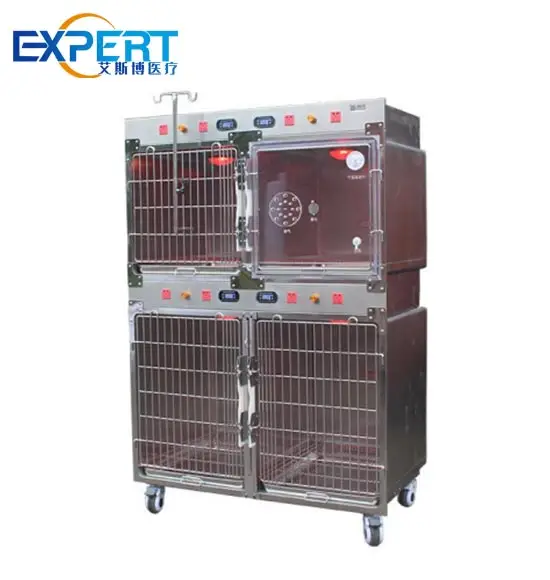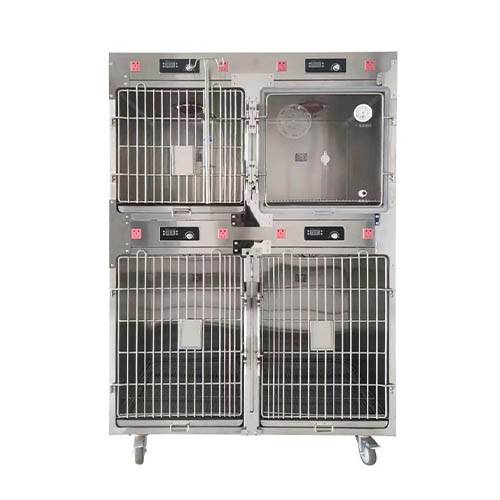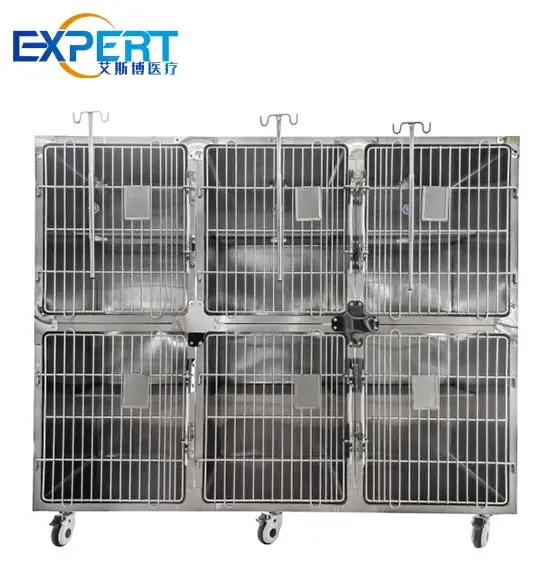Адрес
304 North Cardinal St.
Дорчестер-центр, Массачусетс 02124
Часы работы
С понедельника по пятницу: с 7:00 до 19:00.
Выходные: 10.00 - 17.00
Адрес
304 North Cardinal St.
Дорчестер-центр, Массачусетс 02124
Часы работы
С понедельника по пятницу: с 7:00 до 19:00.
Выходные: 10.00 - 17.00


Veterinary oxygen cages have become indispensable tools in modern veterinary medicine, offering a controlled environment for the treatment and recovery of animals with respiratory issues. These cages provide a range of benefits for both veterinary professionals and their animal patients. In this blog post, we’ll delve into the advantages of veterinary oxygen cages, shedding light on their importance in veterinary care.






Before diving into the advantages, let’s first understand what veterinary oxygen cages are and how they work. Veterinary oxygen cages, also known as oxygen kennels or oxygen tents, are enclosed units designed to deliver a controlled concentration of oxygen to animals in need. These cages typically feature transparent walls, allowing veterinary staff to monitor the patient’s condition closely while providing a safe and comfortable environment for recovery.

| Характерная черта | Standard Cage | Premium Cage |
|---|---|---|
| Oxygen Delivery System | Basic flowmeter | Precision regulator |
| Transparent Walls | Да | Да |
| Temperature Control | Manual adjustment | Digital thermostat |
| Humidity Control | Нет | Optional add-on |
| Size Options | Small, Medium, Large | Customizable |
Veterinary oxygen cages play a crucial role in the treatment and recovery of animals with respiratory issues, providing a controlled and supportive environment for healing. Their advantages, including improved oxygen delivery, reduced stress, and prevention of cross-contamination, make them indispensable tools in modern veterinary medicine. By investing in quality veterinary oxygen cages, veterinary clinics can enhance patient care and improve outcomes for their animal patients.
Вопрос: Есть ли veterinary oxygen cages suitable for all animals?
A: Veterinary oxygen cages can be adapted to accommodate a wide range of species and breeds, but it’s essential to select the appropriate size and design for each patient’s specific needs.
Q: How often should veterinary oxygen cage be cleaned and sanitized?
A: Veterinary oxygen cage should be cleaned and sanitized regularly according to veterinary clinic protocols to ensure a hygienic environment for patients. Frequency may vary depending on the number of patients and the severity of their respiratory issues.
Вопрос: Можно ли veterinary oxygen cages be used for long-term treatment?
A: While veterinary oxygen cages are primarily designed for short-term treatment and recovery, they can be used for extended periods under veterinary supervision. However, prolonged confinement may necessitate additional measures to ensure patient comfort and well-being.
Q: Are there any risks associated with using veterinary oxygen cages?
A: When used properly and maintained according to manufacturer guidelines, veterinary oxygen cages are safe and effective for patient care. However, veterinary professionals should monitor patients closely for any signs of discomfort or adverse reactions during treatment.
Q: How can I choose the right veterinary oxygen cage for my clinic?
A: When selecting a veterinary oxygen cage, consider factors such as size, features, and budgetary constraints. Consult with reputable suppliers and veterinary equipment specialists to explore options tailored to your clinic’s specific needs and requirements.